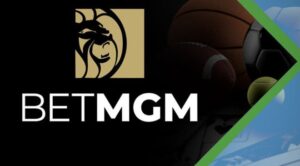Key Moments:
- Regulatory penalties totaling $160 million have impacted the global gambling industry in the first half of 2025.
- European regulators have imposed over €36 million in Anti-Money Laundering fines between March 2024 and March 2025 targeting gambling and payment firms.
- Licensing, ongoing compliance, and operational costs for gambling operators have risen dramatically, with Tier 1 markets like Malta costing up to €600,000 annually.
The Price of Compliance in Today’s Gambling Industry
The past six months have exposed the true cost of failing to meet regulatory standards in the gambling sector, with fines collectively amounting to $160 million globally. Operators have quickly discovered that compliance is an essential, high-stakes component of doing business – no longer a formality, but a critical differentiator.
Major enforcement actions, such as the UK’s £2 million penalty levied against Spreadex for social responsibility lapses, highlight the growing seriousness of regulatory oversight. European authorities have been particularly active, issuing over €36 million in fines tied to Anti-Money Laundering shortcomings within a single year.
Essential Elements of Gambling Compliance
Adhering to regulations is a comprehensive obligation for any gambling enterprise. This involves acquiring the correct gaming licenses, observing Anti-Money Laundering (AML) and Know Your Customer (KYC) norms, implementing player protection measures, following marketing restrictions, and fulfilling tax duties.
Non-compliance results in not only hefty financial penalties but can also trigger license suspension, damage reputation, and restrict access to regulated markets.
Driving Forces Behind Rising Compliance Costs
Operators and affiliates alike are facing increasing costs as a result of coordinated regulatory efforts, growing requirements for technology investment, more robust player protection standards, and heightened tax scrutiny.
- European regulators are standardizing enforcement and sharing information, amplifying the consequences of violations.
- Compliance now requires advanced AML/KYC solutions, real-time monitoring, and strong cybersecurity systems.
- Enhanced responsible gambling rules, stricter advertising limitations, and new self-exclusion mechanisms add to the overall burden.
- Tax authorities are coordinating across borders and demanding more detailed reporting, raising the effective cost of compliance.
The Real Costs: Licensing and Beyond
Licensing expenses vary widely based on the regulatory reputation and requirements of the jurisdiction:
| Jurisdiction | Application/Initial Cost | Annual Renewal/Ongoing | Key Notes |
|---|---|---|---|
| Curaçao | ~€4,600 plus due diligence fees | €24,000-€25,000 | Increasing compliance demands; 12 operators fined over KYC failures |
| Malta (MGA) | Varies | Up to €600,000 | For established operators, includes full compliance obligations |
| Gibraltar | ~€126,000 | Varies | Significant regulatory credibility and access benefits |
| Other Tier 1 (UK, Germany, Malta, Sweden) | $25,000-$60,000+ initial | 5-21% of GGR in ongoing fees/taxes | Higher ongoing cost burden |
Aside from official licensing fees, operators must account for legal services, background checks, technical audits, incorporation expenses, staff training, and ongoing operational obligations.
Ongoing Compliance Expectations and Hidden Expenses
Securing a gambling license is only the beginning. Adhering to AML and KYC requirements commands significant investment in both technology and skilled personnel, amplified by regulatory expansions such as EU Regulation 2024/1624.
- Customer identity verification and real-time transaction analysis are now mandatory at multiple customer journey points.
- Operators must develop or license sophisticated systems for payment processing, cybersecurity, responsible gaming, and comprehensive record-keeping.
- Cryptocurrency integration introduces added complexities and expenses.
Staffing further drives up costs, as compliance teams require experienced professionals, ongoing education, and certification renewals to meet evolving standards.
Regional Variations: Why Geographic Strategy Matters
Jurisdictional differences in regulatory philosophy and enforcement dramatically affect operator costs and business viability.
- Europe: Known for strict regulation and frequent enforcement. The Netherlands, following a gambling tax hike from 30.5% to 34.2% (with 37.8% targeted in 2026), has seen both operator revenues and tax receipts decrease, accompanied by increased unlicensed play. Germany’s 5.3% turnover tax on slots and poker has caused a large shift of activity to the black market.
- Isle of Man: Even previously less restrictive regimes are increasing penalties, as seen with Celton Manx’s £3.9 million AML fine.
Penalties and The Impact of Compliance Failures
Incomplete compliance has resulted in enormous penalties, business closures, and reputational harm for both operators and affiliates. In 2025 alone, regulators have imposed $160 million in fines, with enforcement actions ranging from hundreds of thousands to tens of millions.
- Notable cases include Unibet (Kindred Group) being fined around €400,000 by Dutch authorities for failures concerning self-excluded players.
- Several operators have lost licenses or had banking relationships terminated due to violations.
Strategic Approaches to Managing Compliance Expenses
Successful operators approach compliance as core to their business strategy — not merely a box to check. Key strategies include:
- Carefully selecting jurisdictions that balance market access with cost and regulatory stability
- Investing in robust, scalable compliance technology, with consideration for automation and third-party solutions
- Leveraging external compliance expertise and considering compliance-as-a-service providers
Affiliate Operators: Facing Direct Regulatory Scrutiny
Regulatory focus has increasingly extended to affiliate businesses. Many jurisdictions have introduced direct obligations — including advertising restrictions, mandatory registration or licensing, data protection requirements, and complex tax reporting — for affiliates.
- In the Netherlands and parts of Germany, affiliates must now register or obtain licenses to promote gambling products.
- Spain has implemented new affiliate registration protocols and advertising restrictions.
Looking Forward: Trends for Compliance in the Gambling Sector
Regulatory standards are expected to intensify, with trends including more international cooperation, harmonization of AML/KYC requirements, and heightened expectations for technological sophistication in compliance systems.
- Real-time monitoring and enhanced due diligence protocols are seeing greater adoption globally.
- Authorities are rolling out systems that facilitate information exchanges and cross-border enforcement cooperation.
Compliance as a Foundation for Long-Term Success
The record fines and increasing operational demands of 2025 underscore the necessity of robust compliance infrastructure in the gambling sector. For operators and affiliates alike, treating compliance as a strategic investment is now the decisive factor for survival and growth in regulated markets. Those prepared to invest wisely in compliance will reap the rewards of expanded market access, customer trust, and sustainable profitability.
- Author


